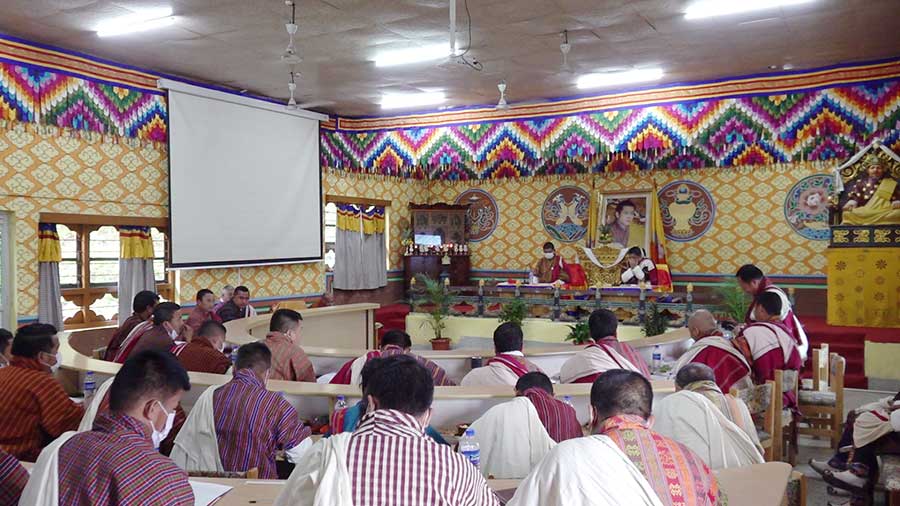
Like in every Dzongkhag Tshogdu session, land-related issues were one of the highlights of the meeting in Samtse this year as well. With an increasing number of people requesting land exchanges, the local leaders in the district called for the need to ease the land exchange rules and regulations so that more people can be benefitted.
As of today, the National Land Commission and the agriculture ministry consider and accept land exchange on two conditions. One is if the land is destroyed by natural calamities and the other is if the land falls within critical watershed areas.
“For Dophuchen Gewog, since 2015, we have received over 600 letters requesting land exchanges. When we go to their villages and review their lands, we have seen a lot of cases where the land has become completely infertile. Likewise, some of their lands are on steep slopes and carrying out land management is impossible,” said Dophuchen Mangmi, Bika Raj Rai.
“When we say land exchange, we shouldn’t only focus on these two factors. Rather it would be better if we come up with land management programs for those who have their lands on rough terrain and steep slopes. It will just be like giving them a new land,” said Samtse Gup, Wangchuk Lepcha.
“When we say land exchanges, I think we should add a few more options for people to be eligible for the service. For example, we should have criteria like lands which have turned into a forest and cannot be used for agriculture will get their land exchanged with government lands,” said Ugyentse Gup, Arna Bdr Thakuri.
However, the officials from the District Land Sector said that it is not a wise decision to introduce more options given the limited government reserved lands.
“We don’t have many governments reserved lands. Moreover, if we change the current policy and allow everyone to exchange their lands with the reserved lands, its impact will be felt by our coming generations. We will not have enough land for major developments soon,” said Tshultrim Zangmo, District’s Land Registrar.
The District Agriculture Sector informed the house that the commencement of the land development programme in the district in November this year is expected to solve the issue. Through the program, agriculture fields are redeveloped by widening terraces and improving soil quality.
Meanwhile, like every year, the Dzongkhag Tshogdu decided to once again write to the National Land Commission and the district’s constituency’s members of parliament to relook into the rules and regulations on exchanging rural and government reserve lands.
The Samtse District Land Record Sector in the last few years has received thousands of applications seeking land exchange from all gewogs.
And of late, the office has considered and recommended about 80 genuine cases for land exchange to the agriculture ministry.
Passang Dorji, Samtse
Edited by Sonam Pem


